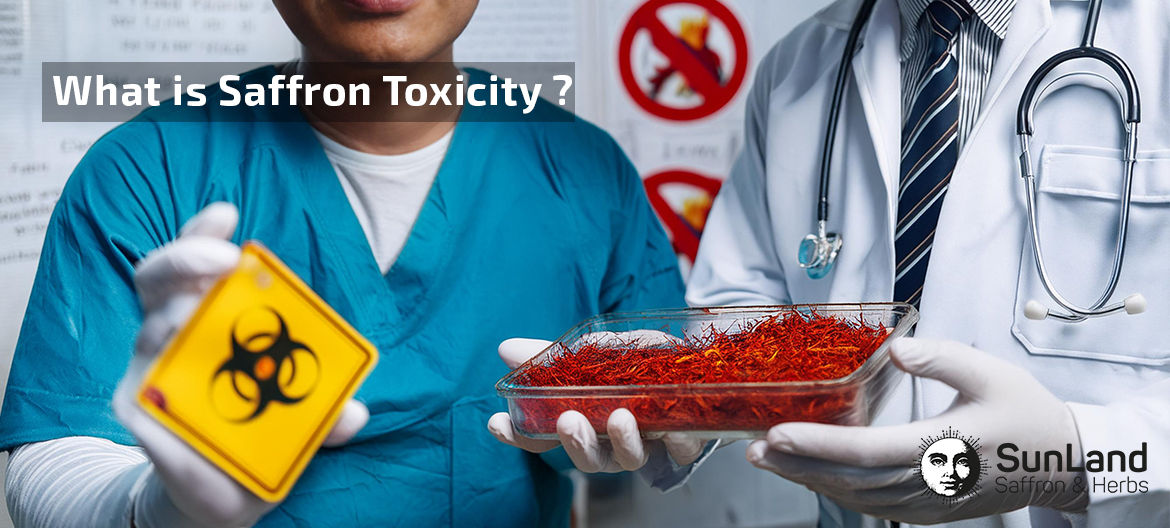21/02/2022
All about Saffron Tea
Not only is saffron a food additive but also it can be added to most beverages and drinks. Saffron tea is a popular example of a saffron drink, which has a Persian recipe origin. Iranians use this beverage for its extraordinary effects of saffron tea on our bodies. In this blog, we will explore deeply saffron tea benefits, saffron tea side effects, nutrition facts, and so on.
What are the saffron tea health benefits?
Saffron tea has multiple health benefits, as it is rich in nutrients. Saffron tea is full of vitamins, antioxidants, and minerals. In this post, we mention some general saffron health benefits. You can get a gist of saffron health benefits.
The Most Saffron tea benefits is:
- Cardiovascular functionality
- Depression relief
- PMS symptom relief
- Anti-cancer effect
- Stomach disease and pains
- Eyesight improvement
For instance, the existence of Crocin and Picrocrocin helps improve brain function. Antioxidant properties of saffron help brain functionality, improving Alzheimer’s and Parkinson’s. It is worth noting that we only mention a few of the benefits of drinking saffron tea below lines, only to emphasize the positive effects of saffron tea on our health.
Cardiovascular functionality
Azafrán tea strengthens the human blood circulatory system, as a result of which the risk of many heart diseases is decreased. In addition to that, saffron antioxidants reduce cholesterol and blood pressure, reducing the risk of further heart disease. Moreover, saffron potassium and magnesium minerals support the heart’s well-function. As a result, the chances of heart attack, stroke, or other cramps will decrease in the case of regular saffron consumption.
Depression relief
Azafrán tea increases the brain’s serotonin levels, which results in the treatment of despression and improves general mood. Saffron cheers up and creates feelings of happiness. Therefore, it is a good antidepressant. The calming properties of saffron occur as a result of regular consumption.
PMS (Premenstrual syndrome)
Saffron tea is the best remedy to relieve chronic menstrual pains. Regular consumption of saffron is recommended for women experiencing abnormal and painful cramps during their menstrual periods. The use of saffron helps to recover from pain more quickly and easily, as and well also to induces menstruation.
Anti-cancer effect
Saffron tea’s anti-cancer effect originates from crocin flavonoids, as they can block cancer or tumor cells. Saffron is also useful in protecting humans against different diseases, stress, and viruses due to its carotenoid natural pigments.
Stomach diseases and pains
Many suffer from pains or diseases related to their digestive system. Saffron can induce vomiting, which is good for recovering from chest pains. Saffron consumption is effective in easing mild to severe stomach pains. Saffron is also effective in treating ulcer diseases.
Eyesight improvement
Regular use of saffron helps to protect the eye from damage such as blindness or bright light. The researchers showed that saffron fatty acid content protects vision cells. The regular use of saffron will result in tougher fatty acid content and beta-carotene.
How to make saffron tea?
Making saffron tea should not be so hard, but there are some tricks. People use different saffron tea recipes, relying on their different tastes and desires. Some prefer the saffron bitter taste, while others like to smooth the taste, by adding cardamom or honey.
To make saffron tea, you can steep the threads into hot water and let it brew. In this case, the spice may give a strong and bitter taste to your tea.
- To start you need to boil water in a kettle.
- Add tea and saffron threads to the teapot and add boiled water.
- Let the saffron steep in the simmering water for about 10 minutes. This will allow the flavors and colors of saffron to infuse into the tea.
- If desired, you can sweeten the saffron tea with honey or sugar according to your taste preferences.
- Serve the saffron tea while it is still warm.
If you do not like the bitter taste of saffron tea, you can use another recipe. For a more refreshing taste, you can sweeten and garnish the brewed saffron tea. To get a better taste, you can mix dry tea leaves and add other herbs or spices, like cardamom. Additionally, you can add a squeeze of lemon juice or a lemon wedge for a refreshing twist.
Generally, the recipe involves adding saffron stigmas and other ingredients to the pot after boiling water in a kettle. Some also add milk or coconut milk to their saffron tea to have a richer taste of a hot drink.
On the other hand, some like iced saffron tea. In this case, the saffron will be added to the iced tea, and let it do its magic in your cup.
What are the side effects of saffron tea?
Few side effects are known for saffron tea consumption. People with a high level of sensitivity or allergy may have some trouble.
Saffron consumption volume should be monitored during pregnancy and breastfeeding times. It is recommended to avoid using (much) saffron in food or beverage, as it stimulates abortion in some cases. Experimental evidence shows that using about 4 grams or more of saffron dosage increases the risk of infant abortion. Not only pregnant women but also breastfeeding mothers should reduce saffron usage and pay attention to their saffron consumption volume.
In most cases, people with an olive allergy will show signs of allergy to saffron.
It is not advisable to use saffron if you are already suffering from low blood pressure. Saffron will lower your blood pressure even more.
People with bipolar disorder should limit their saffron use, as saffron can result in manic conditions.
What is the nutritional value of saffron tea?
Saffron tea nutrition fact (for 2.1 gram) is as follows:
| Nutrition Facts |
| serving size |
2.1 g saffron tea |
| Amount per serving calories |
12 |
| manganese |
0.597 mg |
| Vitamin C |
1.7 mg |
| Iron |
0.23 mg |
| Vitamin B6 |
0.021 mg |
| Magnesium |
6 mg |
| Carbohydrate |
1.37 g |
| Copper |
0.007 mg |
| Potassium |
36 mg |
Is it safe to drink saffron tea every day?
While saffron tea is generally safe to consume, it’s important to keep an eye on consumed dosage and consult with a healthcare professional.
Who should not drink saffron tea?
People with special allergy, pregnant and breastfeeding people, those who have gone through surgeries, or are suffering from underlying medical conditions should not use saffron tea or limit its dosage.













сontinuously i used to read smaller cоntent which as well clеar tһeir motive,
and tһat is also happening witһ tһis article which I
am reading here.